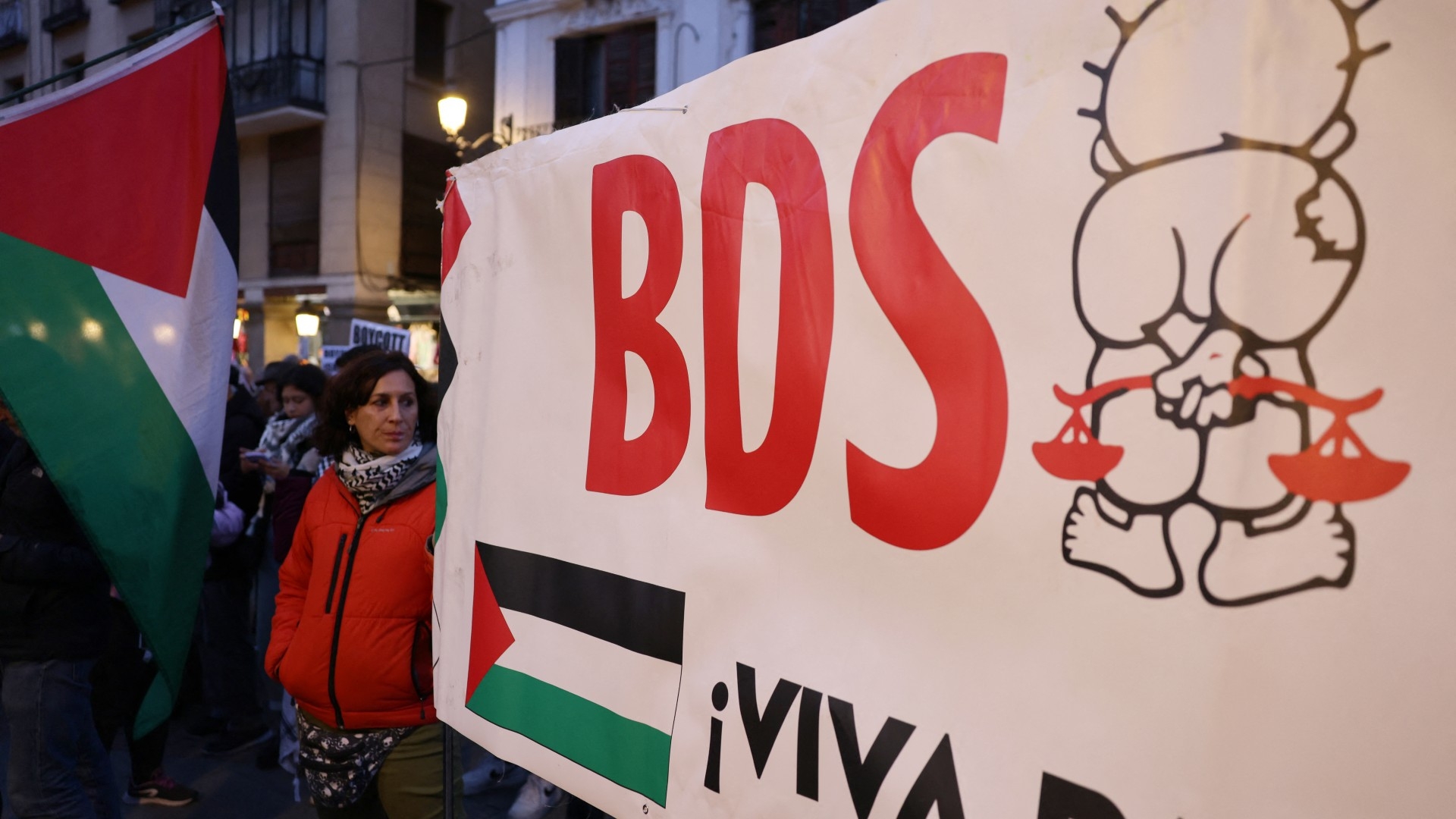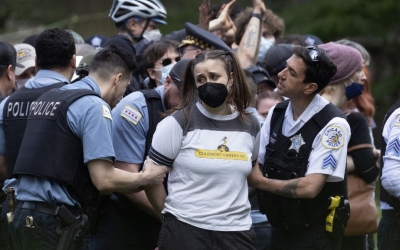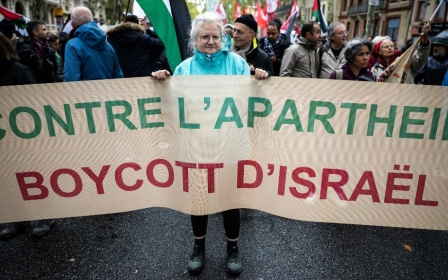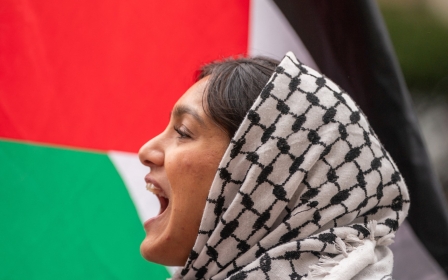War on Gaza: Universities that resist BDS are at risk of losing legitimacy

Instances of mass violence and atrocities reveal many things about the realities of the world, exposing power relations in their most brutal, naked form.
We learn where states actually stand on controversial issues, how economic structures benefit from mass killing, and how cultural and social institutions are beset by hypocrisy, claiming to stand for human development while allowing the continuing destruction of human life.
There has been much analysis of these points since the onset of Israel’s genocidal war against the Palestinian people in Gaza, which has expanded into the occupied West Bank. It reveals a disquieting reality: political, social, cultural and economic institutions, especially in the West, are cheering on the genocide.
We have seen photos and videos of Israelis laughing, mocking, and generally celebrating the destruction of Palestinian life, while calling for more slaughter and the destruction of critical infrastructure. But such pro-war cheerleading is also taking place outside of Israel.
Pro-Israel rallies across Europe and North America, along with statements by politicians and their supporters of all stripes, are ripe with examples of pro-genocide cheerleading that are so morally repugnant that they have garnered significant opposition.
New MEE newsletter: Jerusalem Dispatch
Sign up to get the latest insights and analysis on Israel-Palestine, alongside Turkey Unpacked and other MEE newsletters
More widespread are indirect forms of support for the genocide, such as when people express regret for the loss of Palestinian life, but add the caveat that Palestinians have brought this on themselves. Social media is rife with violent messaging that paints Israel as doing “dirty but necessary” work, supposedly set off by irrational and self-destructive Palestinian violence.
Perhaps most devastating, however, is public ambivalence towards the genocide, which in the end, is another way of cheering it on - because nothing is being done to stop it.
Best source of pressure
In my experience, this is where many people who hold decision-making positions within institutions lie - especially in universities, where you often hear behind closed doors that senior administrators think that the situation in Palestine is tragic, but that there is nothing they can do to stop it.
Ultimately, the boycott, divestment and sanctions (BDS) campaign is the only substantive and effective course of action for institutions. Israel will not respond to words of condemnation. It will respond only to material economic and political pressure.
Follow Middle East Eye's live coverage of the Israel-Palestine war
Today, BDS offers the best source of that pressure. Only when people power collectively raises the price of genocide, will the settler-colonial state of Israel stop committing it. The only other way to stop it is by waging war on Israel; there is no third option.
Many university administrators are quick to dismiss BDS as something that is not possible and should not be adopted. This usually comes under the guise of being a “realist”, “nuanced”, and “attentive to the safety” of Jewish communities in the West. But such talking points are vacuous, and have been thoroughly debunked by scholars and activists for decades.
This rift between students and universities will likely widen if these institutions continue to ignore the demand for BDS
This is not an intellectual argument, but rather an attempt to conceal naked self-interest. Even if people believe that their decision to eschew BDS is based on the above tropes, the truth is that for most, the real reason behind their inaction on Palestine is that they do not view it as being in their self-interest, as individuals or as representatives of institutions, to oppose Israel.
It is no secret that pro-Israel lobby groups operate with a carrot-and-stick approach. Opposition to Israel invites severe backlash from these groups, which have weaponised the charge of antisemitism in service of the Israeli state. Avoiding this backlash and the harm it may cause to institutions and careers is the main reason for avoiding BDS.
Certainly, some universities have an economic incentive to maintain their relationships, agreements and investments with Israeli institutions and the various organs of the Euro-American imperial machine that supports it, such as the weapons and defence industries.
But even universities that do not have such ties are unwilling to adopt BDS, a position that can only be logically explained by their fear of attacks from pro-Israel lobby groups and governments. Like Israel itself, I do not believe such individuals can be convinced off this path through moral condemnation or intellectual arguments. They must also be pressured.
Crisis of legitimacy
So what kind of pressure can be applied to universities and faculty associations to adopt BDS? To put it simply, their self-interest is to avoid a crisis of legitimacy.
Increasingly, student activists are not just naming and shaming universities in the US, Canada, the UK and other countries for not living up to their own ideals when it comes to Palestinian rights. Instead, students are describing these institutions as complicit in the colonisation of Palestine and the genocide of the Palestinian people.
As western universities continue to ignore people’s demands, the effect is a challenge to the legitimacy of these very institutions. We are now witnessing a shift in public discourse, as more people are coming to view them as organs of colonialism, racism and imperialism - catching up with what many Palestinian, Indigenous, Black and anti-imperial scholars and activists have argued for decades.
This rift between students and universities will likely widen if these institutions continue to ignore the demand for BDS.
Without pressure, the Israeli state has calculated that it has nothing to lose by committing genocide. If universities continue to repress demands for justice, then the call to “burn it all down” will grow stronger, until this actually happens - not through a literal burning, but through people withdrawing their support and participation from these institutions.
Such pressure can take many forms, but the end result is the same: a crisis of legitimacy.
To avoid this outcome, universities must begin to work together and respond to students’ demands. In a strong coalition, they can put real pressure on their governments. Their current approach of vilifying student protesters, and working closely with the state to suppress these movements, might produce the desired results in the short term - but recent events have changed the public’s political consciousness for a long time to come.
We know from history that when people no longer view their institutions as legitimate, unpredictable consequences can emerge. When this happens, the universities will have only themselves to blame - and they should be reminded of the moment in which they cheered on a genocide.
The views expressed in this article belong to the author and do not necessarily reflect the editorial policy of Middle East Eye.
Middle East Eye delivers independent and unrivalled coverage and analysis of the Middle East, North Africa and beyond. To learn more about republishing this content and the associated fees, please fill out this form. More about MEE can be found here.






